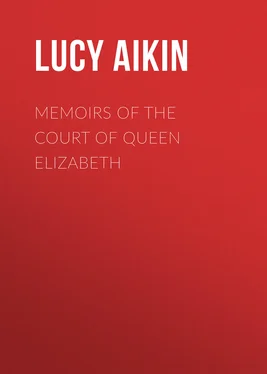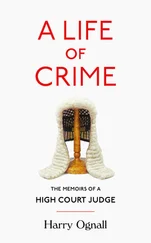Lucy Aikin - Memoirs of the Court of Queen Elizabeth
Здесь есть возможность читать онлайн «Lucy Aikin - Memoirs of the Court of Queen Elizabeth» — ознакомительный отрывок электронной книги совершенно бесплатно, а после прочтения отрывка купить полную версию. В некоторых случаях можно слушать аудио, скачать через торрент в формате fb2 и присутствует краткое содержание. Жанр: foreign_prose, История, foreign_edu, foreign_antique, на английском языке. Описание произведения, (предисловие) а так же отзывы посетителей доступны на портале библиотеки ЛибКат.
- Название:Memoirs of the Court of Queen Elizabeth
- Автор:
- Жанр:
- Год:неизвестен
- ISBN:нет данных
- Рейтинг книги:4 / 5. Голосов: 1
-
Избранное:Добавить в избранное
- Отзывы:
-
Ваша оценка:
- 80
- 1
- 2
- 3
- 4
- 5
Memoirs of the Court of Queen Elizabeth: краткое содержание, описание и аннотация
Предлагаем к чтению аннотацию, описание, краткое содержание или предисловие (зависит от того, что написал сам автор книги «Memoirs of the Court of Queen Elizabeth»). Если вы не нашли необходимую информацию о книге — напишите в комментариях, мы постараемся отыскать её.
Memoirs of the Court of Queen Elizabeth — читать онлайн ознакомительный отрывок
Ниже представлен текст книги, разбитый по страницам. Система сохранения места последней прочитанной страницы, позволяет с удобством читать онлайн бесплатно книгу «Memoirs of the Court of Queen Elizabeth», без необходимости каждый раз заново искать на чём Вы остановились. Поставьте закладку, и сможете в любой момент перейти на страницу, на которой закончили чтение.
Интервал:
Закладка:
Nothing could be more opposite to the strict principles of hereditary succession than the ideas entertained, even by the first lawyers of the time of Henry VIII., concerning the manner in which a title to the crown was to be established and recognised.
When Rich, the king's solicitor, was sent by his master to argue with sir Thomas More on the lawfulness of acknowledging the royal supremacy; he inquired in the course of his argument, whether sir Thomas would not own for king any person whatever,—himself for example,—who should have been declared so by parliament? He answered, that he would. Rich then demanded, why he refused to acknowledge a head of the church so appointed? "Because," replied More, "a parliament can make a king and depose him, and that every parliament-man may give his consent thereunto, but a subject cannot be bound so in case of supremacy 3 3 See Herbert's Henry VIII.
." Bold as such doctrine respecting the power of parliaments would now be thought, it could not well be controverted at a time when examples were still recent of kings of the line of York or Lancaster alternately elevated or degraded by a vote of the two houses, and when the father of the reigning sovereign had occupied the throne in virtue of such a nomination more than by right of birth.
But the obvious inconveniences and dangers attending the exercise of this power of choice, had induced the parliaments of Henry VIII. to join with him in various acts for the regulation of the succession. It was probably with the concurrence of this body, that in 1532 he had declared his cousin, the marquis of Exeter, heir to the crown; yet this very act, by which the king excluded not only his daughter Mary, but his two sisters and their children, every one of whom had a prior right according to the rules at present received, must have caused the sovereignty to be regarded rather as elective in the royal family than properly hereditary—a fatal idea, which converted every member of that family possessed of wealth, talents, or popularity, into a formidable rival, if not to the sovereign on the throne, at least to his next heir, if a woman or a minor, and which may be regarded as the immediate occasion of those cruel proscriptions which stained with kindred blood the closing years of the reign of Henry, and have stamped upon him to all posterity the odious character of a tyrant.
The first sufferer by the suspicions of the king was lord Thomas Howard, half-brother to the duke of Norfolk, who was attainted of high treason in the parliament of 1536, for having secretly entered into a contract of marriage with lady Margaret Douglas, the king's niece, through which alliance he was accused of aiming at the crown. For this offence he was confined in the Tower till his death; but on what evidence of traitorous designs, or by what law, except the arbitrary mandate of the monarch confirmed by a subservient parliament, it would be difficult to say. That his marriage was forbidden by no law, is evident from the passing of an act immediately afterwards, making it penal to marry any female standing in the first degree of relationship to the king, without his knowledge and consent.
The lady Margaret was daughter to Henry's eldest sister, the queen-dowager of Scotland, by her second husband the earl of Angus. She was born in England, whither her mother had been compelled to fly for refuge by the turbulent state of her son's kingdom, and the ill success of her own and her husband's struggles for the acquisition of political power. In the English court the lady Margaret had likewise been educated, and had formed connexions of friendship; whilst her brother James V. laboured under the antipathy with which the English then regarded those northern neighbours, with whom they were involved in almost perpetual hostilities. It might easily therefore have happened, in case of the king's death without male heirs, that in spite of the power recently bestowed on him by parliament of disposing of the crown by will, which it is very uncertain how he would have employed, a connexion with the potent house of Howard might have given the title of lady Margaret a preference over that of any other competitor. Henry was struck with this danger, however distant and contingent: he caused his niece, as well as her spouse, to be imprisoned; and though he restored her to liberty in a few months, and the death of Howard, not long afterwards, set her free from this ill-starred engagement, she ventured not to form another, till the king himself, at the end of several years, gave her in marriage to the earl of Lenox; by whom she became the mother of lord Darnley, and through him the progenitrix of a line of princes destined to unite another crown to the ancient inheritance of the Plantagenets and the Tudors.
The princess Mary, after the removal of Anne Boleyn, who had exercised towards her the utmost insolence and harshness, ventured upon some overtures towards a reconciliation with her father; but he would accept them on no other conditions than her adopting his religious creed, acknowledging his supremacy, denying the authority of the pope, and confessing the unlawfulness of her mother's marriage. It was long before motives of expediency, and the persuasion of friends, could wring from Mary a reluctant assent to these cruel articles: her compliance was rewarded by the return of her father's affection, but not immediately by her reinstatement in the order of succession. She saw the child of Anne Boleyn still a distinguished object of the king's paternal tenderness; the new queen was likely to give another heir to the crown; and whatever hopes she, with the catholic party in general, had founded on the disgrace of his late spouse, became frustrated by succeeding events.
The death of Catherine of Arragon seemed to have removed the principal obstacles to an agreement between the king and the pope; and the holy father now deigned to make some advances towards a son whom he hoped to find disposed to penitence: but they were absolutely rejected by Henry, who had ceased to dread his spiritual thunders. The parliament and the convocation showed themselves prepared to adopt, without hesitation, the numerous changes suggested by the king in the ancient ritual; and Cromwel, with influence not apparently diminished by the fall of the late patroness of the protestant party, presided in the latter assembly with the title of vicegerent, and with powers unlimited.
The suppression of monasteries was now carried on with increasing rigor, and thousands of their unfortunate inhabitants were mercilessly turned out to beg or starve. These, dispersing themselves over the country, in which their former hospitalities had rendered them generally popular, worked strongly on the passions of the many, already discontented at the imposition of new taxes, which served to convince them that the king and his courtiers would be the only gainers by the plunder of the church; and formidable insurrections were in some counties the result. In Lincolnshire the commotions were speedily suppressed by the interposition of the earl of Shrewsbury and other loyal noblemen; but it was necessary to send into Yorkshire a considerable army under the duke of Norfolk. Through the dexterous management of this leader, who was judged to favor the cause of the revolters as much as his duty to his sovereign and a regard to his own safety would permit, little blood was shed in the field; but much flowed afterwards on the scaffold, where the lords Darcy and Hussey, sir Thomas Percy, brother to the earl of Northumberland, and several private gentlemen, suffered as traitors.
The suppression of these risings strengthened, as usual, the hands of government, but at the expense of converting into an object of dread, a monarch who in the earlier and brighter period of his reign had been regarded with sentiments of admiration and love.
Читать дальшеИнтервал:
Закладка:
Похожие книги на «Memoirs of the Court of Queen Elizabeth»
Представляем Вашему вниманию похожие книги на «Memoirs of the Court of Queen Elizabeth» списком для выбора. Мы отобрали схожую по названию и смыслу литературу в надежде предоставить читателям больше вариантов отыскать новые, интересные, ещё непрочитанные произведения.
Обсуждение, отзывы о книге «Memoirs of the Court of Queen Elizabeth» и просто собственные мнения читателей. Оставьте ваши комментарии, напишите, что Вы думаете о произведении, его смысле или главных героях. Укажите что конкретно понравилось, а что нет, и почему Вы так считаете.












